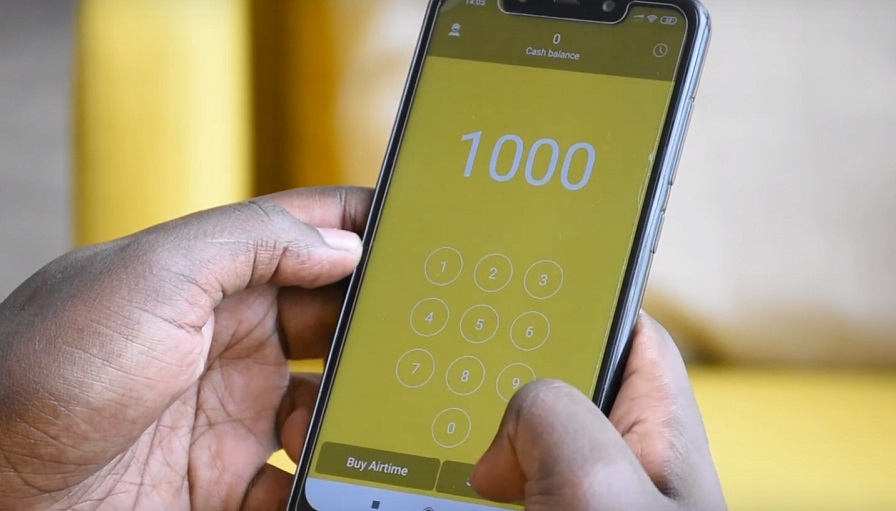Kenyan fintech startup Asilimia is helping small businesses more easily access various payments mechanisms through a digital ecosystem.
Founded in 2017, Asilimia aims to empower small businesses through an affordable, easy-to-use and tailored digital payments platform.
Its Android app gives business owners direct access to a payment infrastructure specifically tailored to their needs via their mobile phone, eliminating tedious registration processes and allowing them to easily send money at scale, invest savings on transaction fees into insurance or business loans, gain insights into their finances, and minimise payment fraud.
“Currently we enable M-Pesa to M-Pesa transfers, but are working on integrating with other mobile money providers as well as banks. Ultimately, we hope to make mobile money transfers entirely free,” Tekwane Mwendwa, Asilimia’s co-founder and chief executive officer (CEO), told Disrupt Africa.
The startup was launched after Mwendwa found himself unable to afford a bus ride home due to high mobile money withdrawal fees, even though he had sufficient funds in his mobile wallet. He decided to create an affordable and simple digital payment solution, which has since been targeted at micro and small businesses, which create 80 per cent of Kenya’s jobs and contribute 40 per cent of the country’s GDP.
“Today, many small businesses in Kenya cannot access business-focused mobile money solutions because of bureaucratic complexity. Small businesses thus use cash and C2C infrastructure for business transactions, which drive up their costs and do not allow them to become resilient and grow,” Mwendwa said.
“Despite the tremendously widespread M-Pesa personal accounts across Kenya, Safaricom’s business solutions have to date managed to reach a very small number of customers. We believe that closing this gap does not only represent a tremendous business opportunity, but also has the potential to help unbanked and underbanked MSMEs grow and eventually trickle this wealth down to the very bottom of the pyramid.”
The self-funded Asilimia, which has opened a funding round in a bid to raise US$500,000, does have competition, in the form of companies like BitPesa, Chipper Cash, Kopo Kopo, PesaPal and Popote Pay, but believes it stands out from the crowd.
“Our main differentiator is that our tech solution is market-focused, building a platform based on the character of small and micro businesses. While other fintechs might make money transfers easy or cheaper, only Asilimia provides small businesses with a solution that truly understands them,” said Mwendwa.
“For instance, we offer real-time money settlement, eliminate long registration procedures, provide only three-step transaction process, and don’t require the recipient to have an Asilimia account. Our mantra – “ease, freedom, value” – captures what we offer.”
Asilimia is seeking funding in order to acquire its first 50,000 users and process one million transactions, but for now is focused on developing success stories and a positive track record within dedicated markets in Kenya, such as Gikomba Market, one of the largest fish markets in Nairobi.
“For that reason, we have not been conducting large-scale campaigns to acquire more users but have been doing our best to ensure our current 1,500 users are satisfied,” Mwendwa said.
Asilimia will develop with these early adopters, replicating local experimentations with a continuous improvement loop, with Kenya the sole focus for the time being.
“For the long-range, our team is running a cross-analysis on MSMEs and mobile payment development in other countries, with key actors, sectors, and numbers. This survey will highlight competing or converging initiatives to feed our development strategy. Eventually, we aim to expand to East Africa and later to Sub-Saharan Africa,” said Mwendwa.
He said the startup believes payments today are commoditised, but financial inclusion is what brings value to users and “deserves a profit”. Asilimia, then, aims to provide an affordable platform with the lowest money transfer fees on the market, generating large amounts of data as it scales.
“We generate revenues by monetising the data we collect to banking, insurance or other partners and enable them to offer more targeted products to our users,” Mwendwa said.
This is not happening just yet, however, with Asilimia currently in the pre-revenue stage and the application entirely free to use.
“Soon, however, we will charge users for their variable cost for the payment infrastructure to make digital transactions up to 60 per cent cheaper than M-Pesa’s C2C infrastructure fees,” said Mwendwa.
“Despite the impact we have achieved, we realise that operating an entirely free platform is not sustainable in the long-term. We are thus working hard on sharpening our financial and business modeling of different revenue streams to identify key hypotheses, sustainable growth pace, and associated investment needs.”


